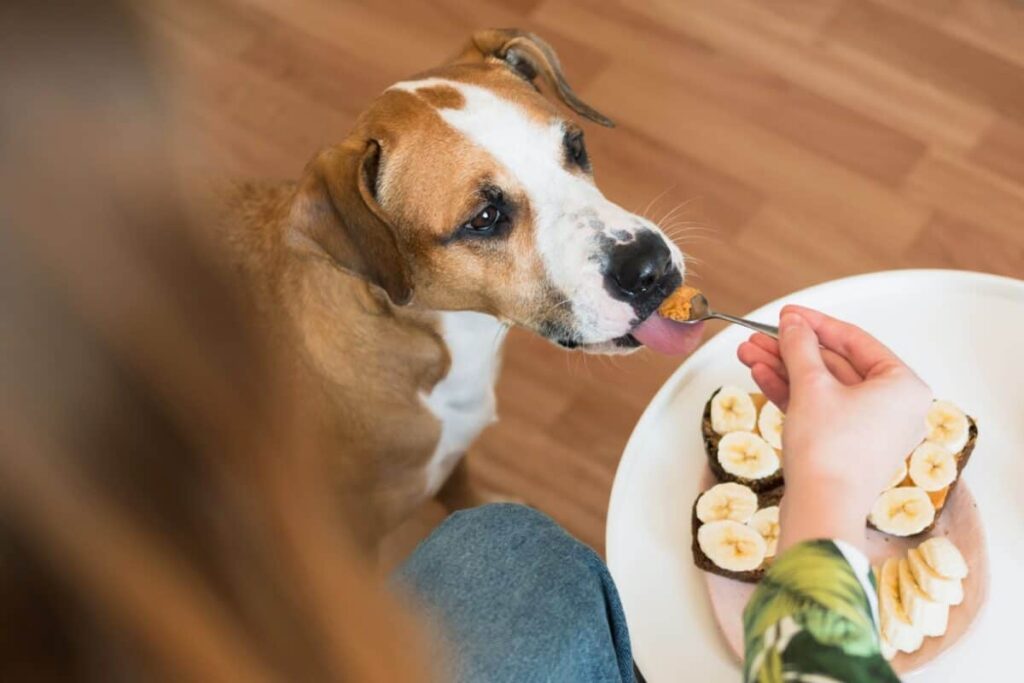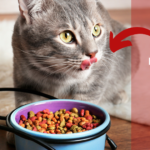
As a pitbull owner, it’s important to understand your dog’s nutritional needs and to choose a high-quality food that meets those needs. To help you out I’ve prepared this article on FAQs about Feeding Pitbulls.
In this blog post, I’ll cover everything you need to know about feeding your pitbull.
Here you will learn about nutritional requirements, choosing the right food, feeding schedule, and portions, treats and supplements, common feeding problems, and more.
By the end of this post, you’ll have a better understanding of how to provide your pitbull with the nutrition they need to live a healthy and happy life.
FAQs about Feeding Pitbulls: Everything You Need to Know
So without further ado let’s get started with Pitbull health facts you need to know. As food or diet is the most important part of the health, I’ve covered it in detail.
Topic 1: What are the Nutritional Requirements for Pitbulls?
Pitbulls have specific nutritional requirements that are different from other dog breeds. As active and muscular dogs, they require a diet that is high in protein and fat to support their energy needs and maintain their muscle mass. Here are some of the key nutritional requirements for pit bulls:
- Protein: Pitbulls need a minimum of 25% protein in their diet to maintain muscle mass and support growth and repair.
- Fat: Pitbulls require a moderate amount of fat in their diet, around 14-20%, to provide energy and support healthy skin and coats.
- Carbohydrates: While carbohydrates are not essential for Pitbulls, they can provide energy and fiber. Pick whole grain, fruit, and vegetable sources of carbs.
- Vitamins and minerals: They require a range of vitamins and minerals. It includes vitamins A, D, E, and K, as well as calcium, phosphorus, and magnesium, to support their health.
- Water: Access to clean, fresh water is essential for pitbulls. It helps regulate their body temperature and aids in digestion.
When choosing best dog food for your pitbull, make sure to read the label and ensure that it meets its nutritional requirements.
Keep an eye out for dishes with meat as the first component. Foods that contain fillers, byproducts, or artificial preservatives should be avoided. Consulting with your veterinarian can also be helpful in determining the right food for your pitbull’s specific nutritional needs.
Topic 2: How to Choose the Right Food for Pitbulls
Choosing the right food for your pitbull is crucial for their health and well-being. With so many dog food options available, it can be overwhelming to determine which one is best for your pitbull. Here are some tips for selecting the right food for your pitbull:
Look for High-Quality Ingredients
The first ingredient listed on the dog food label should be a high-quality source of animal protein, such as chicken, beef, or lamb. Avoid feeding your dog food that contains artificial preservatives, fillers, or byproducts.
Choose the Right Type of Food of Pitbulls
Dry dog food is a popular choice for pitbulls, as it is convenient, affordable, and provides the necessary nutrition.
Wet dog food can also be a good option, especially for dogs who struggle to stay hydrated.
Some pitbull owners prefer to feed their dogs a raw diet. But it is important to ensure that the diet is nutritionally balanced and safe.
Check for AAFCO Approval
Look for dog food that meets the standards set by the Association of American Feed Control Officials (AAFCO). This ensures that the food meets the minimum nutritional requirements for dogs.
Consider Your Pitbull’s Age and Activity Level
Puppies and adult dogs have different nutritional needs, as do pitbulls who are highly active versus those who are more sedentary. Choose a dog food that is appropriate for your pitbull’s age and activity level.
Be Aware of Food Allergies
Pitbulls, like all dogs, can have food allergies or sensitivities. If your pitbull experiences digestive issues, skin problems, or other health issues after eating a certain type of food, it may be a sign of an allergy or sensitivity. To decide the best course of action, speak with your veterinarian.
Topic 3: What are the Feeding Schedule and Portions for Pitbulls?
Once you’ve found the right dog food for your furry friend, it’s important to establish a feeding schedule and an appropriate portion. Here are some tips to keep in mind:
Establish a Feeding Schedule
- Consistency is key – try to feed your dog at the same time(s) each day
- Adult dogs typically eat twice a day – once in the morning and once in the evening
- Puppies may require more frequent feedings – consult with your veterinarian for guidance
- Avoid free-feeding (leaving food out all day) as it can lead to overeating and weight gain
Determine Appropriate Portions
- Follow the feeding guidelines on the dog food packaging as a starting point
- Adjust portion sizes based on your dog’s age, weight, and activity level
- Monitor your dog’s weight and adjust portions as needed to maintain a healthy weight
- Treats should be given in moderation and accounted for in the daily calorie intake
Other Feeding Considerations
- Ensure that there is always access to fresh, clean water
- Use appropriate feeding bowls – stainless steel or ceramic are good options
- Slow feeder bowls can be helpful for dogs who eat too quickly
- Avoid feeding your dog table scraps or human food, which can be high in fat and salt and can cause digestive issues or other health problems.
By establishing a consistent feeding schedule and using appropriate portion sizes, you can help ensure your dog gets the nutrition they need to live a healthy and happy life.
Topic 4: What Treats and Supplements Should I Give My Pitbull?
In addition to their regular dog meals, many pitbulls enjoy treats and supplements. While treats can be a great way to reward good behavior or provide a snack, it’s important to choose them wisely. Here are some tips for selecting treats and supplements for your pitbull:
- Choose high-quality treats: Look for treats made with high-quality ingredients. Meat or vegetables, and avoid treats that are high in sugar, salt, or artificial preservatives. You can also make your own treats at home using simple, healthy ingredients.
- Consider dental health: Many dog treats are designed to promote dental health by cleaning teeth and freshening breath. Look for treats that are designed for dental health, or consider using dental chews or bones.
- Avoid supplements unless recommended by a veterinarian: While some supplements, such as joint supplements or probiotics, can be beneficial for pitbulls, it’s important to consult with a veterinarian before giving your dog any supplements. Over-supplementing can lead to health problems.
- Monitor calorie intake: Treats and supplements can add calories to your pitbull’s diet, which can lead to weight gain. Monitor your dog’s calorie intake and adjust their meals to ensure they maintain a healthy weight.
Topic 5: What are Common Feeding Problems of Pitbulls?
Despite your best efforts, your pitbull may still experience feeding problems. Here are some common feeding problems that pitbull owners may encounter and solutions to address them:
- Overeating: Pitbulls love to eat, and may overeat if given the opportunity. To prevent overheating, establish a regular feeding schedule. You should measure your dog’s food to ensure they are getting the appropriate amount.
- Digestive issues: Pitbulls may experience digestive issues such as diarrhea, vomiting, or constipation. This may be caused by food allergies or sensitivities, overfeeding, or eating too quickly. The optimum course of action should be decided in consultation with your veterinarian.
- Picky eaters: Some pitbulls may be picky eaters and refuse to eat their regular food. This can be frustrating for owners, but it’s important to avoid giving in and feeding your dog treats or table scraps instead. Stick to a regular feeding schedule and consult with your veterinarian for advice.
- Obesity: Pitbulls are prone to obesity, which can lead to a range of health problems. To prevent obesity, monitor your pitbull’s calorie intake, provide regular exercise, and choose a high-quality dog food that meets their nutritional needs.
Topic 6: What are Common Health Issues Related to Nutrition in Pitbulls?
Nutrition plays a critical role in the health and well-being of pitbulls. Feeding your pitbull a balanced and nutritious diet can help prevent a range of health issues. However, poor nutrition can lead to a number of health problems, including:
Obesity
As mentioned earlier, pitbulls are prone to obesity. It can lead to a range of health problems including joint pain, diabetes, and heart disease.
Allergies and Sensitivities
Pitbulls can develop food allergies or sensitivities. It may cause difficulties with the skin, the digestive system, and other functions. Common allergens in dog food include beef, chicken, wheat, and soy.
Dental Problems
Feeding your pitbull a diet that is high in sugar or lacks dental benefits can lead to dental problems such as gum disease, tooth decay, and bad breath.
Nutritional Deficiencies
A diet that is deficient in certain nutrients can lead to a range of health problems in pitbulls. It includes poor coat quality, a weakened immune system, and poor growth and development in puppies.
Topic 7: FAQs about feeding Pitbulls Debunking Common Myths
There are several myths and misconceptions surrounding the feeding of pitbulls. It’s important to dispel these myths and ensure that you are providing your pitbull with the best possible nutrition. Here are some common pitbull feeding myths:
Pitbulls Need a High-Protein Diet
While pitbulls do need a diet that is high in protein, it’s important to ensure that they receive adequate levels of carbohydrates, fats, vitamins, and minerals.
A diet that is too high in protein can lead to health problems such as kidney damage.
Grain-free Diets are Best for Pitbulls
Some pitbulls may benefit from a grain-free diet if they have a grain allergy or sensitivity. There is no evidence that a grain-free diet is better for pitbulls than a diet that includes grains.
Raw Food Diets are Best for Pitbulls
While raw food diets have become popular among dog owners, there is no evidence that they are better for pitbulls than high-quality commercial dog food.
Raw food diets can also pose a health risk to both dogs and humans due to the risk of bacterial contamination.
Pitbulls Should be Fed a Homemade Diet
This is one of the most interesting part of this FAQs about Feeding Pitbulls!
Homemade diets can be a healthy option for some dogs. It is important to ensure that the diet is nutritionally balanced.
It is capable of meeting your pitbull’s specific nutritional needs. It’s also important to consult with a veterinarian before starting your pitbull on a homemade diet.
While pitbulls do need a diet that is high in protein, it’s important to ensure to receive adequate levels of carbohydrates, fats, vitamins, and minerals. A diet that is too high in protein can lead to health problems such as kidney damage.
Final Thought
I hope you’ve followed this FAQs about Feeding Pitbulls closely and got all your answers.
Feeding your pitbull a healthy and balanced diet is essential for its health and well-being.
By understanding their nutritional requirements, you can choose the right food. It avoids common feeding problems and dispels common feeding myths.
You can ensure that your pitbull is receiving the best possible nutrition. Don’t forget to consult with your veterinarian for guidance on your pitbull’s specific nutritional needs and to provide regular dental care.
With the right approach, you can help your pitbull live a long and healthy life.

Patricia White is a pet enthusiast. With 10 years of experience in the pet industry, she brings a wealth of knowledge and expertise to MeToPet. She is honored to be a part of the MTP team and is dedicated to sharing her passion for pets with our readers.









